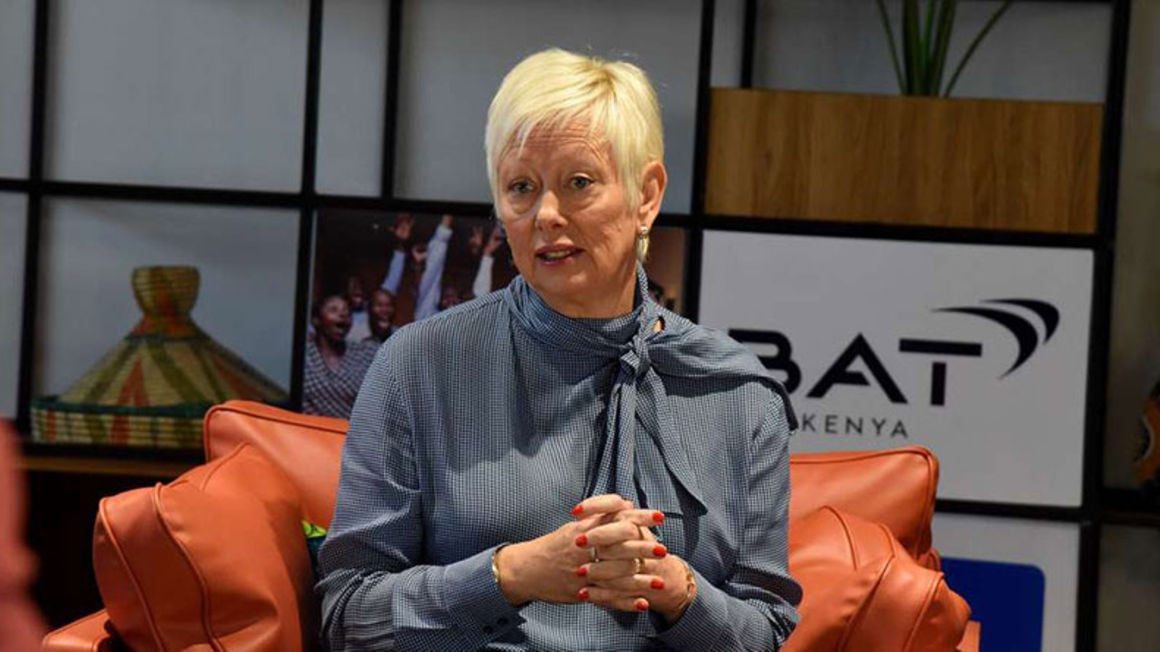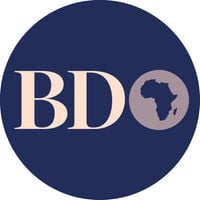
BAT Kenya managing director Beverley Spencer-Obatoyinbo. PHOTO | DIANA NGILA | NMG
Summary
- BAT Plc, the parent firm, has in recent years been diversifying from cigarettes in response to flagging sales across the globe.
- As part of the global strategy Kenya was chosen to host a plant for production of non-combustible nicotine pouches targeting the African market at an estimated cost of Sh2.5 billion.
- But free sale of nicotine pouches, trading locally under Lyft brand, has, has been resisted by the Ministry of Health and civil society lobby groups such as International Institute for Legislative Affairs
British American Tobacco (BAT) Kenya continues to fight battles in the market, ranging from annual rises in taxation and activists pushing for the ban of tobacco products because of health risks associated with cigarette smoking.
BAT Plc, the parent firm, has in recent years been diversifying from cigarettes in response to flagging sales across the globe.
As part of the global strategy Kenya was chosen to host a plant for production of non-combustible nicotine pouches targeting the African market at an estimated cost of Sh2.5 billion.
But free sale of nicotine pouches, trading locally under Lyft brand, has, has been resisted by the Ministry of Health and civil society lobby groups such as International Institute for Legislative Affairs [Ministry of Health has since declared the products illegal]. They want the new products heavily taxed and regulated.
BAT Kenya managing director Beverley Spencer-Obatoyinbo spoke to the Business Daily on the new plant and developments in the cigarette market.
***
WHAT INFORMED TO DECISION TO SET UP THE NICOTINE POUCHES FACTORY?
We announced to the government [of Kenya] about two years ago now that we had the intention to invest $25 million in a new manufacturing site. This is part of the group’s strategy to move the business into potentially harm-reduced products.
Basically, we are providing more choices and allowing people to move away from smoking. That strategy has been in place at the group level for over 10 years in terms of research and development. But, as a business, now we are at a position to start expanding the footprint of these new categories around the world.
WHY WAS KENYA CHOSEN?
We were extremely proud to say this investment was chosen for Kenya. We have a very long history of manufacturing here for over 100 years. This factory has been here since the 1960s and we have got a very long relationship with (tobacco) farmers. So it seemed sensible from a group perspective to continue that relationship here in Kenya and build the first manufacturing site in Africa for the nicotine pouches here in Kenya. We were really excited about this. We shared the information with the presidential team and the Ministry of Trade about two years ago.
HOW WILL KENYA BENEFIT FROM THE NEW PLANT?
Cigarette volumes globally are declining year-on-year. These new categories are becoming increasingly available and we are filling in that space. This is a very fantastic opportunity for Kenya to enter into that space.
We have big intent for this to be the manufacturing site for Comesa [Common Market for Eastern and Southern Africa] and beyond, and it will be a very important site for the BAT Group in regard to new categories.
BUT THERE ARE GENUINE CONCERNS THIS PRODUCT IS JUST AS HARMFUL AS CIGARETTES?
There has been a lot of discussion and debate because this something new and I don’t think people fully understand this product category.
So we have got some work to do to make sure that people understand this product — where it sits in terms of risk and what potential benefits would be from a health perspective in terms of moving adult smoking population over into a potentially significantly less harmful category.
WHY ARE YOU PUSHING FOR A TAX HOLIDAY WHEN PEOPLE WANT THE SALE OF THE POUCHES TO BE HEAVILY TAXED AND REDUCED?
We hope this product will fall into a different category from excisable goods because of its harm within the nicotine space.
We are in discussion with the Treasury and the KRA [Kenya Revenue Authority] with regards to where they see this category being positioned. We believe that based on its reduced harm profile, excise tax paid should be significantly lower than cigarettes.
We are looking for a holiday of two to three years in order to start manufacturing, distribution and sale of this category, and also give us a chance to establish exports because obviously we are looking at EAC and Comesa markets for exports. We already have interest from factories way beyond our normal remit. The potential for this is quite big.
WHERE WILL THIS LEAVE THE TOBACCO FARMERS?
There will definitely need to be discussions with leaf farmers in terms of how these categories all come together. The nicotine that is currently utilised in pouches is produced in Switzerland and is obviously drawn from tobacco leaves.
The Kenyan leaf fits in the global leaf that BAT purchases. In the medium to long-term, we will be looking with farmers at other sustainable crops. So we will not leave the farmers high and dry. We will be working closely with them so that they can still be fully operational 12 months of the year because over time cigarette space will decline.
WOULD YOU SAY BAT’S BEST DAYS ARE BEHIND IT?
I am extremely positive about the future of BAT. I have been in Kenya now for three and a half years. From our BAT Group strategy we are talking about a better tomorrow, and that flows through directly to BAT Kenya. So we see a very positive, long-term and sustainable future for this business here in Kenya.
It may look slightly different going forward from what it has in the past, but that’s a very positive thing. We have spent a lot of energy and effort trying to make sure we have a fantastic team of people that enjoy coming to work every day in a beautiful environment, and also they are able to plan the strategy for our Kenyan shareholders.
cmunda@ke.nationmedia.com





No comments :
Post a Comment